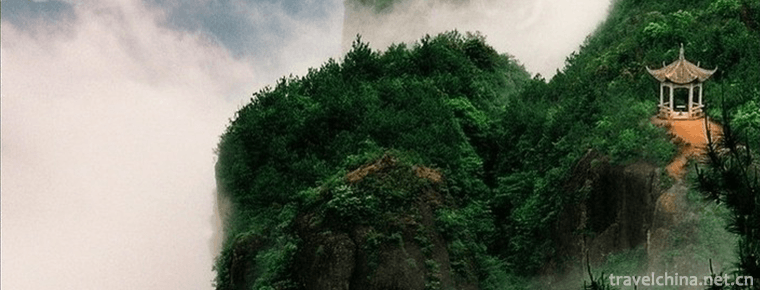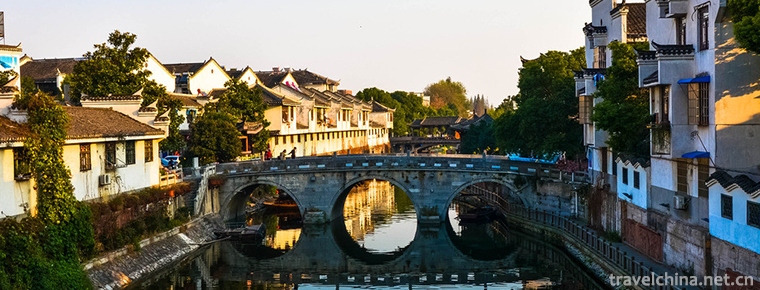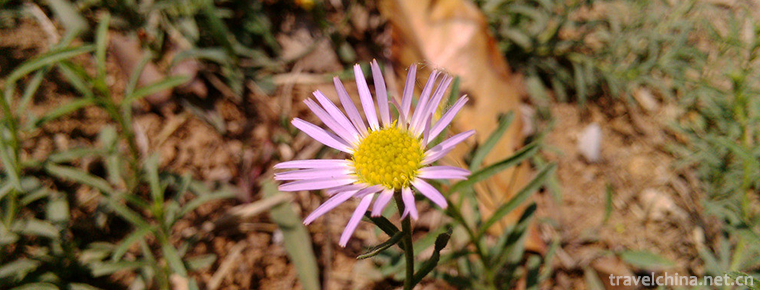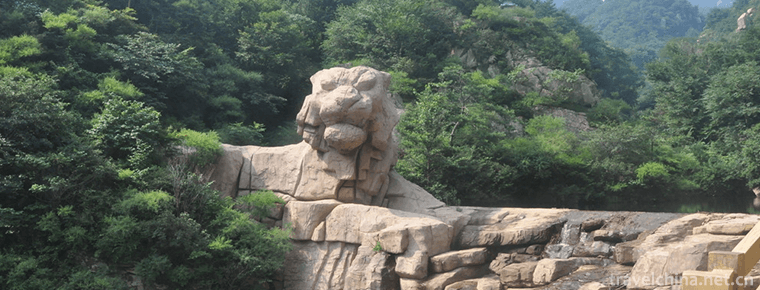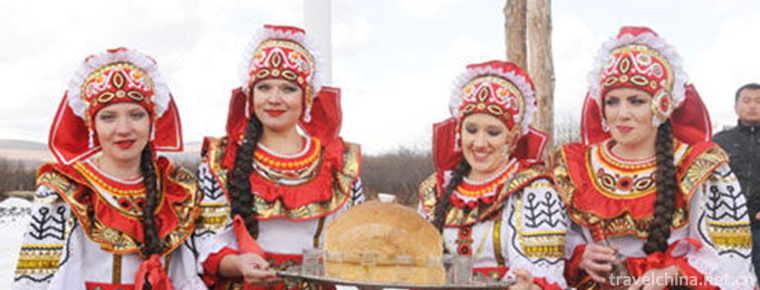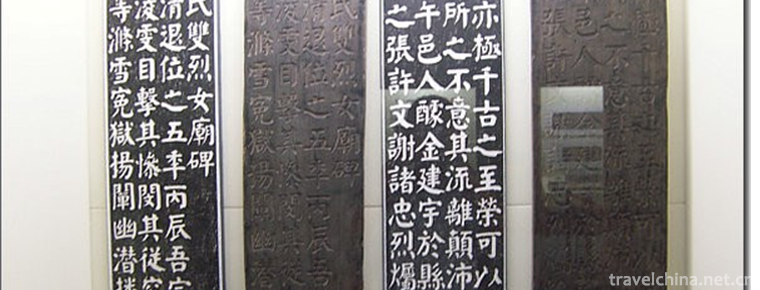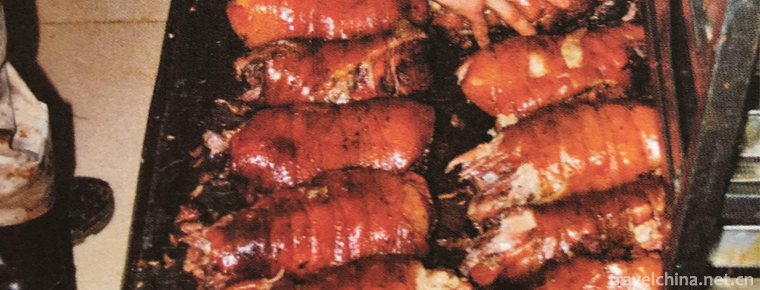Tongzhou Bangzi
Tongzhou Bangzi
Tongzhou Bangzi, a local traditional drama in Dali County, Shaanxi Province, is one of the national intangible cultural heritage.
Tongzhou Bangzi originated in more than ten counties of Dali (Gutongzhou) Center in the east of Guanzhong, Shaanxi Province. Accompanied instruments, besides drum beating, are also named for their striking festivals with jujube bangs. It has a long history and far-reaching influence, and is known as the originator of Bangzi cavity. In the process of development, in order to be different from the Western Road Qin Opera, it is also called the Eastern Road Qin Opera (known as the Old East Road by Tongzhou people). Stylistically, it maintains a full-tuned singing, generous and passionate music and rough and heroic performances, with the vigor of the ancient Qin Dynasty.
On June 7, 2008, Tongzhou Bangzi was approved by the State Council of the People's Republic of China to be included in the second batch of national intangible cultural heritage lists. The heritage number is IV-122.
historical origin
In the late Ming Dynasty, Tongzhou Bangzi had a group performance. According to Wang Mouer, an old artist of Tongzhou Bangzi (middle of Qing Guangxu), Li Zicheng led the peasant rebellion army to train in Xiaotong, Pucheng (south of county, near Weinan) during Chongzhen (1628-1644), and used Tongzhou Bangzi Opera as a military entertainment officer. They were then brought into Beijing. It also spread to the Central Plains, Jiangsu, Zhejiang, Huguang and other places. Folk proverbs circulated in Dali and other places: "A donkey's joy comes out of the south of the city (indicating Lu Ziqian, an artist of Tongzhou Bangzi at the end of the year). It can roar into the sky with a single sound. No opera, no tangle, keep up with the blind Li (that is, Li Zicheng) through Tongtian. Nanjing and Yanshan became popular, but they lost their lives outside. In Qing Xuke's Barnyard Banknotes, he also said, "The Qin Opera has existed in the Ming Dynasty, as evidenced by Li Zicheng." In the past three years (1664), together with Xijing Ran Tan, there were Zoujia Class of Tongzhou Bangzi. Famous artists included Huangjuhua (artistic name) in Heyang and Baipeony (artistic name) in Tongzhou.
During the reign of Qianlong (1736-1795), like Bangzi's and Qin's tunes in Zhouzhou, the various types of tunes with different forms of slab have basically formed, and gradually formed their unique musical characteristics. The tunes have "flat side two tunes", accompanied by two strings. The instruments include the moon piano, amber, pipa, etc. The "three-eye tune" is set, which runs side by side with the Riquan tune and Weinan tune formed at the same time. Keep pace. At the same time, there emerged a group of artists such as Xiaohui in Tongzhou, Huangsan in Pucheng, Guojiu in Xier Chengcheng in Chang'an, Zhou Zhizhi in Zhufeng Band and Shuangfeng Band. Among them, Xiaohui and Xiaohui went to Xi'an to set up Shuangqing Branch to perform, and together with Xianglin in Weinan Opera, they won the reputation of "Three Excellents" in Guanzhong Opera.
During the period from Jiaqing to Guangxu (1796-1908), it was the peak of the development of Tongzhou Rongzi. Various singing patterns had been perfected, and there were two melodic forms of hard and bitter tones. There were abundant literary, martial arts instruments, gongs and drums scriptures and music cards. All kinds of colorful tunes had been perfected, and the performing skills had been greatly improved. Following the four major classes (Pan Hanlong Ban, Qi Tang Ban, etc.) and eight small classes (Baniu Village Ban, Liu Village Ban, etc.) of Daoguang Xianfeng (1821-1861), in the twenty years of Guangxu, there were more than 30 class societies, such as Qingtai Ban, Sanheban, Dushengban, and so on. The famous roles were Shengjiao Yunbao Er (Ma Zihong), accompanying officials and Dongzhi Er, and Danjiao had Xingyeer, Changsheng Er Er, Changsheng Er. Children, such as Wuwuzi, Huhuzi, clown soap, Lanzhou and so on. "Gai Shaanxi" Chang Ming Er and Xu Sheng Wang Moer have been working in Beijing for many years. Liwei Records Company has produced two albums of "White Snake Biography" and "Hanxing Tu" for Chang Ming Er. After Xue Gujiu, the "Twelve Red" in Weinan, came to Beijing to present his art, he took part in the performance of Zhili Bangzi Group and became famous in Beijing. Some artists have also set up Yitai Ban in Beijing, which has been performing in Beijing for many years. In addition, Liu Zhier, Bai Jiahong and a thunder waited for performances in Sichuan and Hubei. Dali Li Li Dogwa Ban and Chaoyi Xingsheng Ban went to Taiyuan, Shanxi Province and other places to perform. The repertoire was unprecedentedly rich, and a large number of manuscripts were handed down to the world. For example, dozens of manuscripts such as The Painter in Jiaqing Decade (1805) and Thorn Zhongshan (1808) were copied in the thirteenth year. Some scholars have also devoted themselves to script creation, such as Qingyun Anan written by Lei Xueqian in Heyang, Bitiansha written by Xu Panzhu, and many other publishing workshops have printed a large number of scripts, such as Tiejiao Tomb and Xiahe Dong, which are woodcarved in Sanyuan Tang of Dali, Qingyitang and Yongqing Tang of Huaxian.
In the early years of the Republic of China, Xi'an's "improved Qin Opera" led by Xi'an Yiyi Society developed rapidly. Class societies in Weinan, Dali, Huaxian, Pucheng and other places set off a trend of learning to sing "improved Qin Opera", abandoning the old habits of Tongzhou Bangzi, making the activity area of Tongzhou Bangzi shrink day by day, coupled with wars and famines. By the 1920s, the Bangzi group society dedicated to Tongzhou Bangzi had disappeared. Only Shi Jiaozi set up Tongzhou Bangzi Group to perform in Suide, northern Shaanxi. Famous artists such as Huayin Niu Baishun and Tongguan Zhu Chatang went to Lanzhou to perform in a group, while Zhao Jiemin, the "biting teeth" artist, went to Xi'an Yiyiyi Club to teach or perform in Qin Opera Club. Since the 1930s, it has become a great success.
After the founding of the People's Republic of China, under the guidance of the Communist Party of China's policy of "letting a hundred flowers blossom, weeding out the old and bringing forth the new", Tongzhou Bangzi was reborn. An exhibition was held in 1956. In 1957, Tongzhou Bangzi Class was set up in the provincial theatre school, and 80 students were recruited to teach with Tongzhou Bangzi veteran artists. Among them, Wang Mouer, Xiaodan Zhu Linfeng, Xiaodan Zhu Linfeng, Wenwu Xiaosheng Zhao Donglang, Dajing Wang Maicai, Erjing Wang Lai, Zhengdan Wang Zhixi, clown Liu Shansan, Xusheng He Xiangchu, Wu coach Zhang Jianlong and Huadan Wang Deyuan were invited to teach. (Flowering suddenly), musicians Wang Hongsheng, Duan Junfeng, Li Haiyun, Yao Jingui, Wang Ruiting, etc. While inheriting Tongzhou Bangzi, under the guidance of famous Peking Opera masters such as Shang Xiaoyun and Xu Biyun, the students studied and performed more than 30 operas and more than 90 zigzag operas. They also trained a group of band performers and participated in the performance of five provinces of Northwest China in 1958. In 1960, the Shaanxi Youth Actors'Association performed. Twelve young actors were awarded prizes, and the school's Bangzi troupe also won the title of "Red Scarf" troupe.
In 1961, Tongzhou Bangzi Band came to Beijing to perform such dramas as Breaking Ningguo, Shifokou and Yuanmen Chopper, which attracted the attention of theatre circles. Zhou Yibai watched the show in 1964. After graduation, the class was allocated to Weinan. Tongzhou Bangzi Theatre Troupe was founded in Weinan Special Zone. It was dissolved in 1966 because of the beginning of the "Cultural Revolution". In 1979, Tongzhou Bangzi Troupe of Shaanxi Province was restored in Xi'an. In addition to restoring the traditional repertoire, some new historical plays and modern plays were also experimentally performed, which once again gave Tongzhou Bangzi a new life.
Inheritance and Protection
Inheritance value
historical value
Tongzhou Bangzi is the originator of Chinese Bangzi Opera. Its voice has a long history. It is gradually evolved on the basis of music and dance of "Western Sound", "Qin Sound", "Qin Wind" and "Qin Sound". Previous scholars have said that "Qin Opera is commonly known as Bangzi Opera, which is also named for its wooden stick as an instrument. Its origin is very ancient, and it is said that it originated in the Warring States Period", "Qin voice is the legacy of Yan Zhao's tragic songs, and after the Qin Dynasty, its voice is more and more provocative, and the actual embryo of Qin Opera in later generations is thereafter".
market value
Tongzhou Bangzi is an ancient opera that the people of Tongzhou and even the northwest region yearn for and recall. It is the responsibility of the opera circle to study and arrange performances and keep them. It can arouse the people's love for opera, further activate the cultural life of the people, and has far-reaching significance for the study of the development of Qin Opera.
Heritage figures
He Mantang, male and Han, was selected as the representative successor of the fifth batch of national intangible cultural heritage projects. He Mantang declared in Dali County, Shaanxi Province.
protective measures
In 1994, the Dali County Opera Troupe arranged the Bangzi aria of Tongzhou, which was recorded and broadcast by Shaanxi TV Station.
In 2003, the local government of Dali County earmarked 5,000 yuan, and the Dali County Bureau of Culture and Sports raised 10,000 Wutong yuan from the society for census, collation, protection of Tongzhou Bangzi repertoire and collection and arrangement of music songs.
In 2003, Dali County Cultural Museum visited and understood the situation of Bangzi in Tongzhou, and made a comprehensive recording, video recording, archiving and collection of relevant materials.
In 2006, Dali County Cultural Museum searched for the living old Bangzi artists in Tongzhou and sorted out the music materials.
social influence
Important performances
On the evening of November 24, 2018, Dali County Opera Troupe "Tongzhou Bangzi" and "Broken Bridge Meeting" participated in the grand ceremony of the 2018 Opera Hundred Opera (Kunshan) held by the Ministry of Culture and Tourism.
On January 18, 2019, Tongzhou Bangzi "Date Flower Fragrance" participated in a large-scale event "The Voice of Qin Walking into Dali and Dali People's New Year" held by the "Voice of Qin" column group of Shaanxi Radio and Television Station in Dali County.
Honorary recognition
On October 19, 2016, "Silver Bracelet Inspection" participated in the 11th China Art Festival at Fuping Theatre.
On October 29, 2016, "Yin Bang Jian" was performed in the exhibition of intangible cultural heritage of Chinese opera.
On October 13, 2018, Tongzhou Bangzi Modern Opera "Jujube Flower Fragrance" participated in the 2018 National Bangzi Opera Exhibition in Shijiazhuang, Hebei Province.

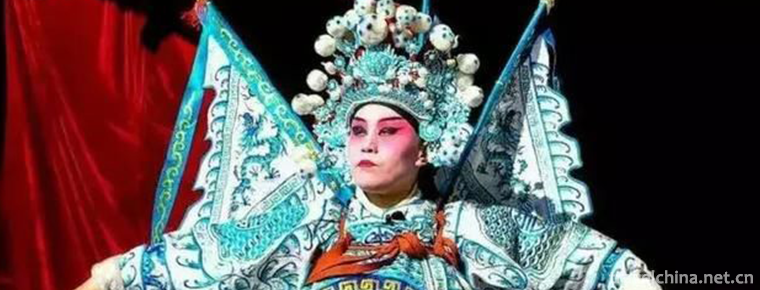
-
Tiger Leaping Gorge
Tiger Leaping Gorge, known as "danger", is one of the deepest canyons in China.
Views: 244 Time 2018-10-17 -
Three Gorges Dam
The Three Gorges Dam is located in Sandouping Town, Yichang City, Hubei Province, China. It is 38 kilometers from the Gezhouba .
Views: 146 Time 2018-11-11 -
ShenxianjuImmortal residence
Shenxianju, a famous ancient mountain, is also known as Weiqiang Mountain. Now it is a national 5A scenic spot. There is the title of He Shu's calyx in Qianlong period of Qing Dynasty.
Views: 211 Time 2018-12-07 -
Sanhe ancient town Scenic Area
Sanhe Ancient Town Scenic Area is located in Feixi County, Hefei City, on the shore of Chaohu Lake, adjacent to Lujiang County and Shucheng County.
Views: 143 Time 2018-12-08 -
Hepeishan National Forest Park
Hepeishan National Forest Park is located in Zouping County, Binzhou City, Shandong Province, at the junction of Zouping County and Zhangqiu County. The total area of the park is 480 hectares.
Views: 121 Time 2019-01-13 -
Lion Mountain Scenic Area
Lion Mountain Scenic Area is located in the east of Shaoshan Scenic Area, which is divided into Lion Mountain Scenic Area and Benbenling Scenic Area..
Views: 373 Time 2019-02-08 -
Lake Yanxi
Yanqi Lake: located at the foot of Yanshan Mountain 8 kilometers north of Huairou City, a suburb of Beijing, is a land and water area centered on the lake surface.
Views: 170 Time 2019-03-02 -
Russian Basque Festival
"Russian Basque Festival" is an important traditional festival of the Russian people in Erguna, Inner Mongolia, no less than the Han Spring Festival. Every year during the period from late A.
Views: 266 Time 2019-04-28 -
Rubbing and Printing Skills of Hengshui Inscriptions
Hengshui Law Tie Engraving and Printing Technology, the traditional handicraft of Taocheng District, Hengshui City, Hebei Province, is one of the national intangible cultural heritage..
Views: 191 Time 2019-05-03 -
Old soup essence formula
The formulation of Royal Food Old Tangjing includes the formulation and production technology of Old Tangjing, which is a valuable cultural treasure in the history of condiment development in China. T.
Views: 126 Time 2019-05-11 -
Traditional Processing Techniques of Liuweizhai Sauced Meat
Liuweizhai is a well-known Chinese brand which was founded in 1738 in the three years of Qianlong in Qing Dynasty. Its sauced meat, as a traditional food in China and a famous food in the Three Jin Dy.
Views: 143 Time 2019-05-14 -
China University of Labor Relations
China Institute of Industrial Relations (China University of Labor Relations) All China Federation of trade unions Ordinary Institutions of higher learning It is jointly built by the all China Federat.
Views: 154 Time 2019-12-20


